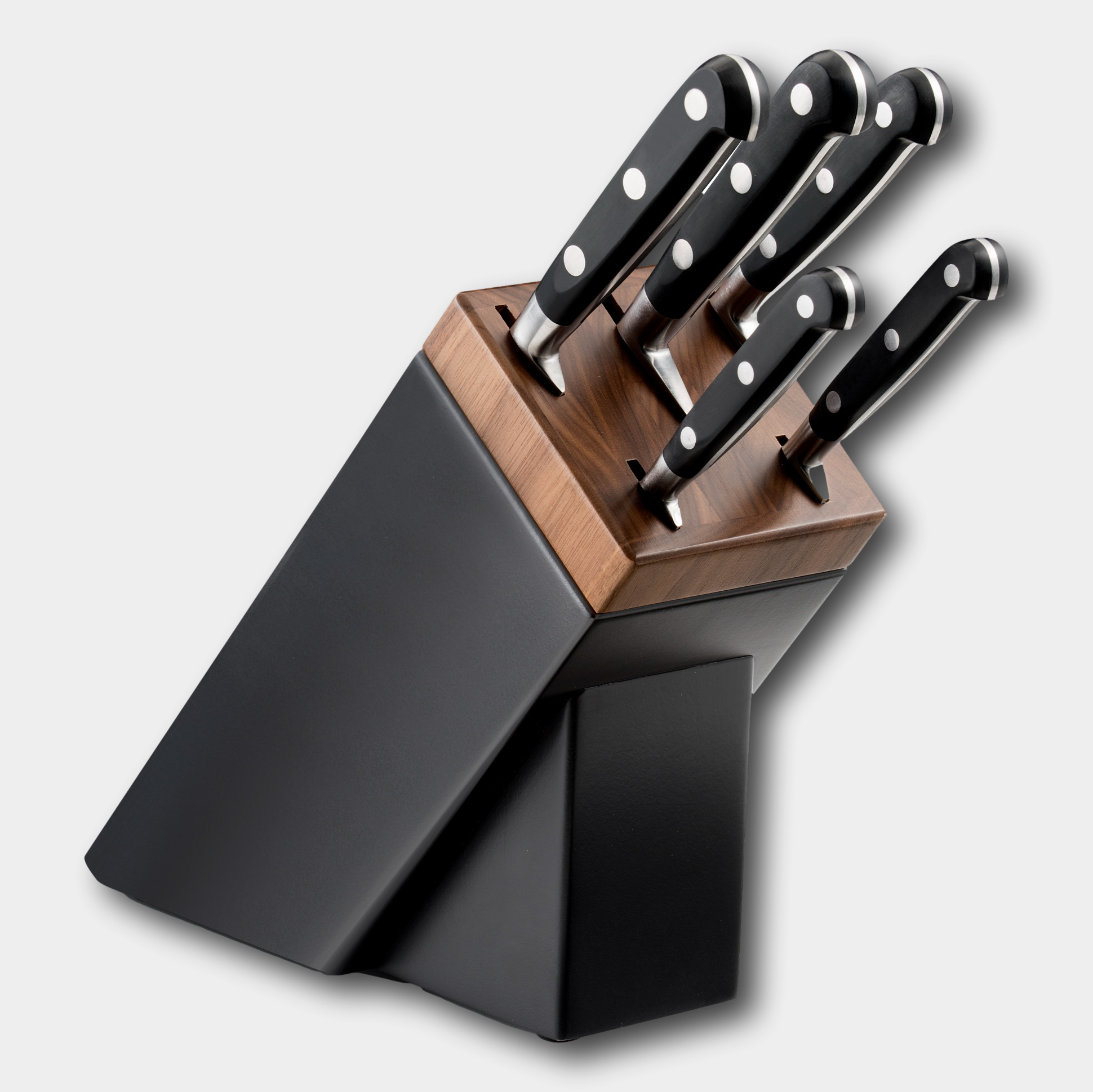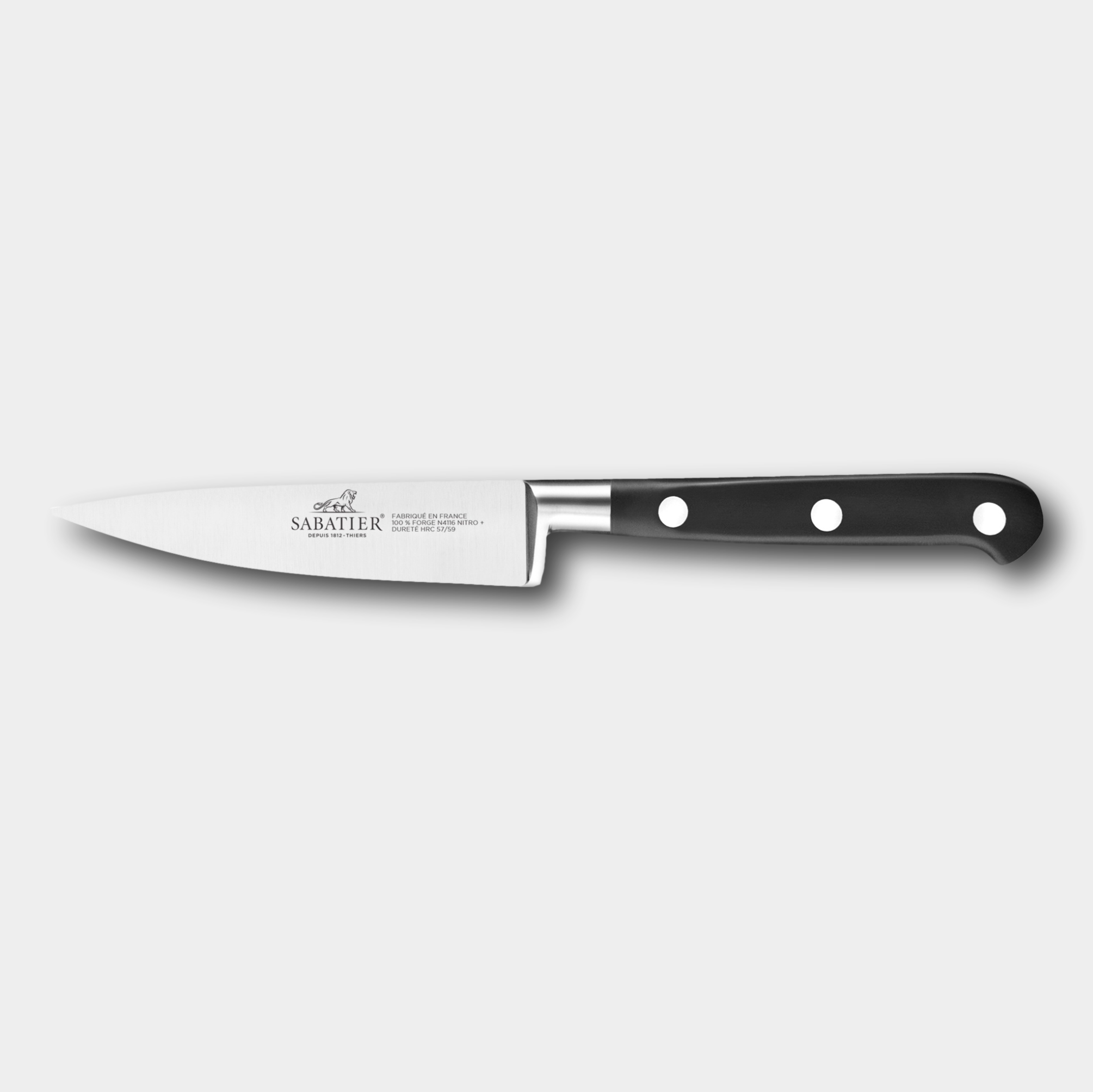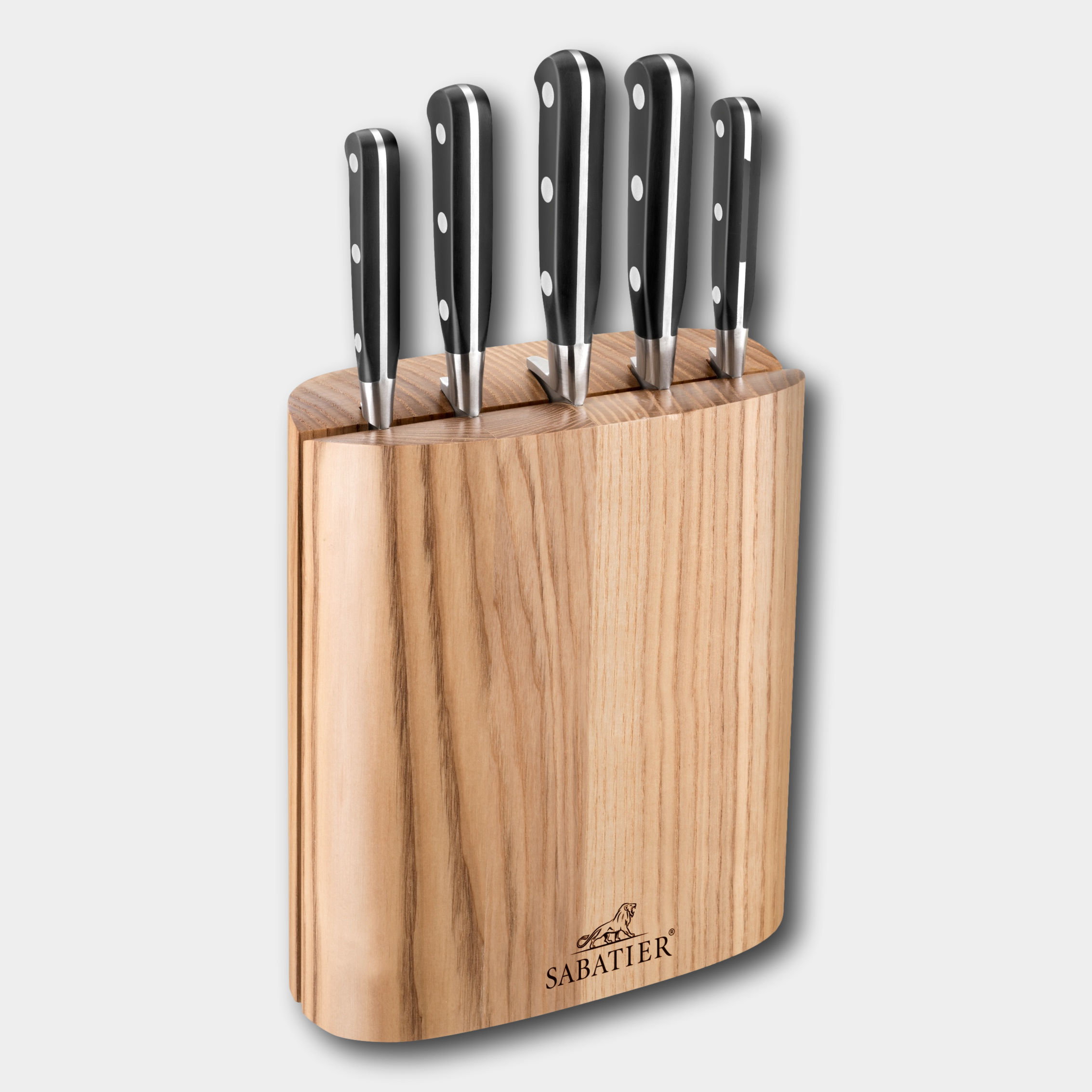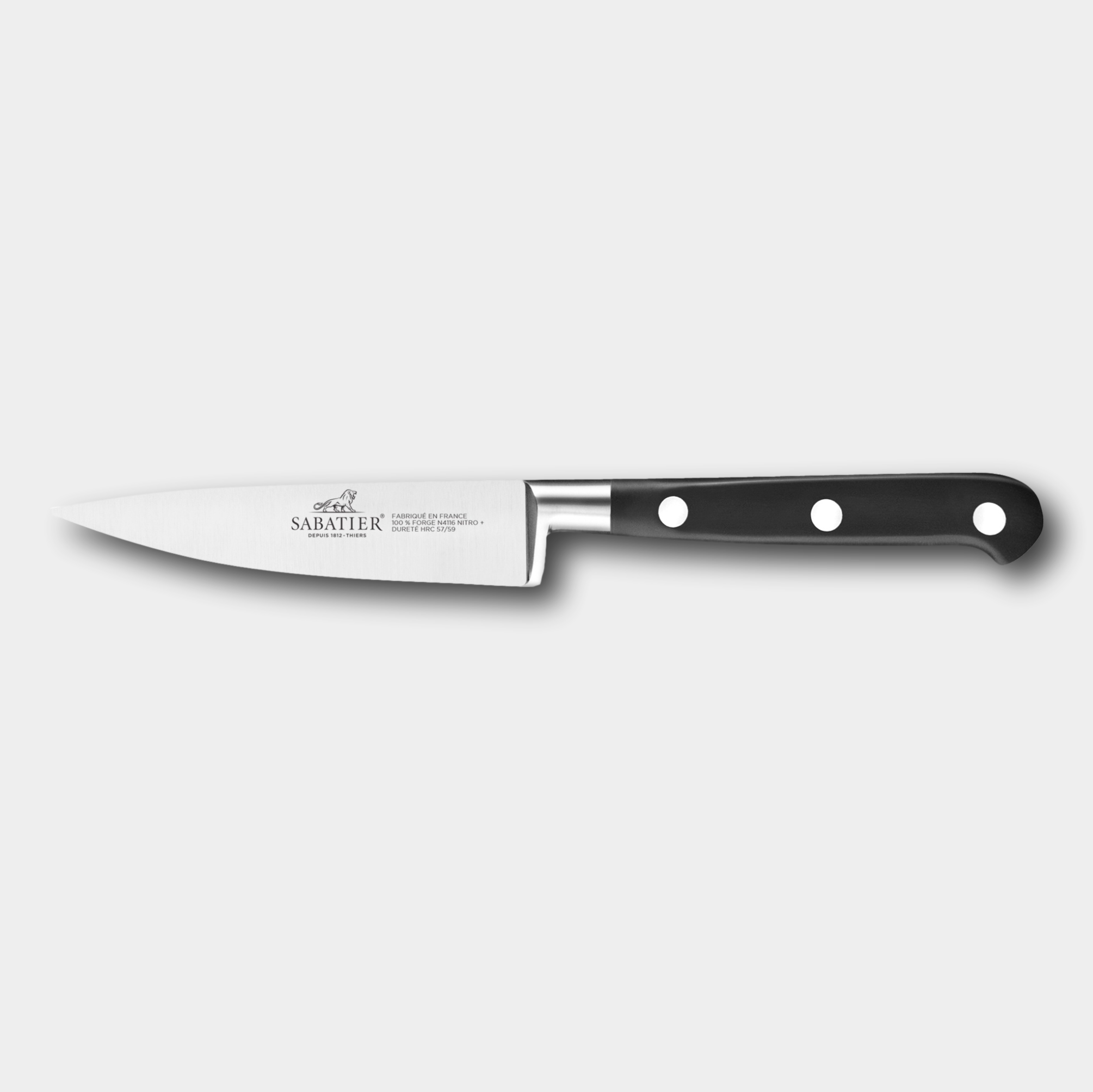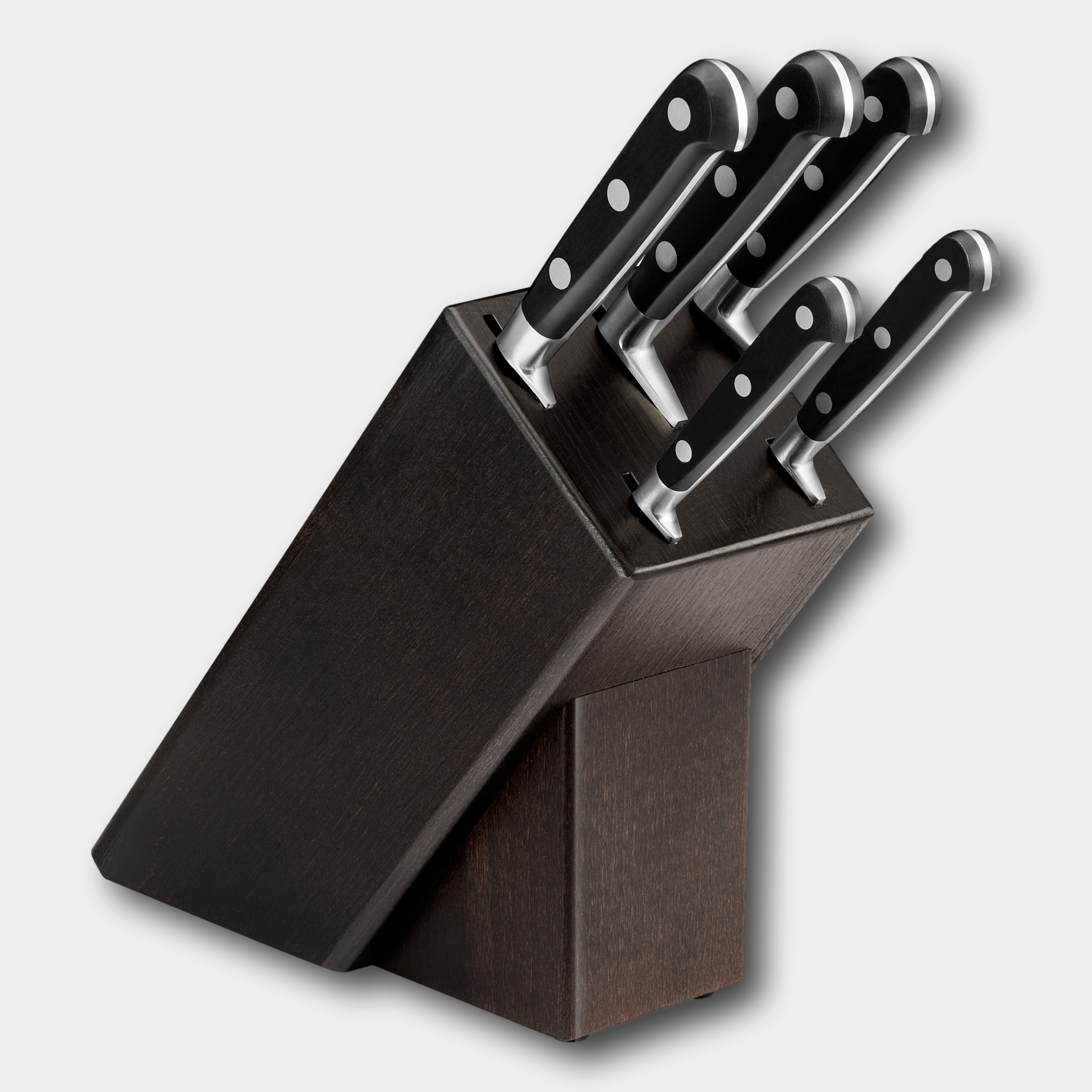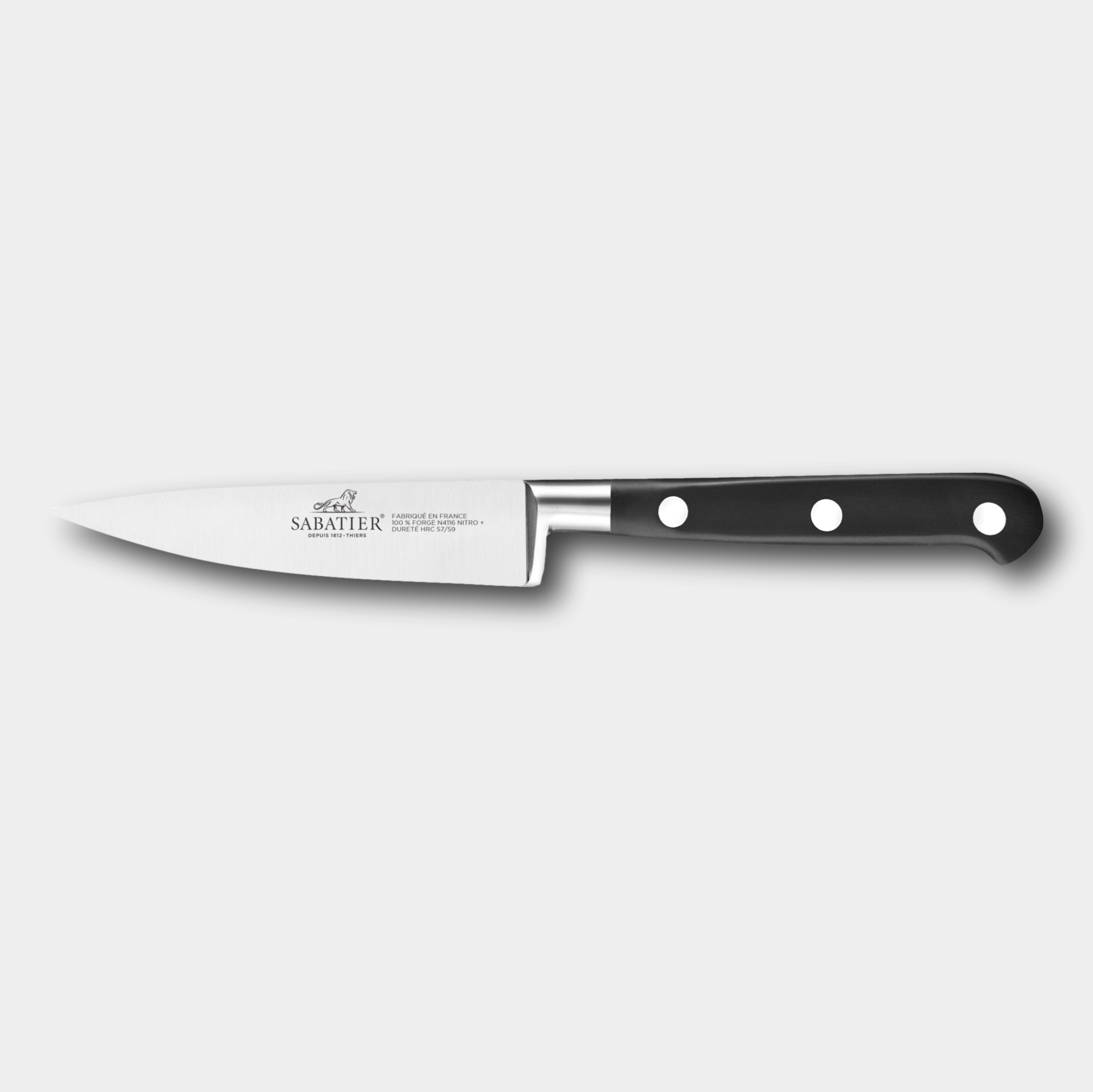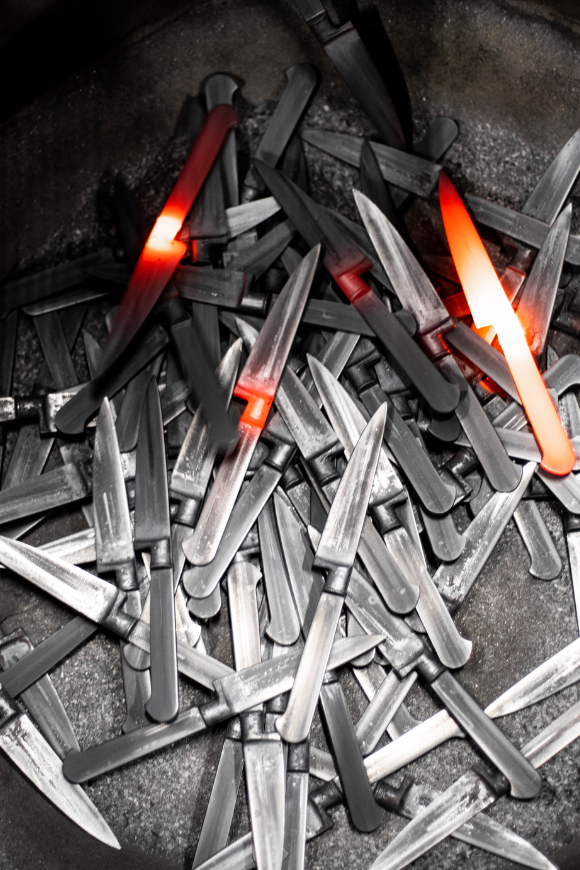
Lion Sabatier Ideal Steel Knife Block Sets
Knives That Mean Business
At The Cotswold Knife Company, we are pleased to offer a selection of Lion Sabatier Ideal Steel knife block sets, exemplifying the brand's commitment to French culinary excellence. Handcrafted in Thiers, France, these fully forged knives feature high-carbon stainless steel blades, renowned for their exceptional sharpness and durability. The full tang construction, complemented by triple stainless steel rivets, ensures a balanced and secure grip, enhancing precision in every cut. From the robust full tang construction to the precise balance and control, every aspect of a LION SABATIER knife is crafted to enhance your cooking experience, making it easier, faster, and more enjoyable.
Each block set has been put together to provide the right tool for every culinary task. A testament to this is the Lion Sabatier Ideal Steel Sarlat Black & Walnut 6-Piece Block Set, which comprises essential knives such as a 10cm paring knife, 13cm utility knife, 20cm carving knife, 20cm bread knife, and a 20cm chef's knife, all housed in a stylish black and walnut wood block that adds elegance to any kitchen countertop.
Key Features
- Rockwell Rating56-58 HRC
- Expert CraftsmanshipExpertly crafted to give a perfect knife every time
- Ergonomic Handles: Ergonomically designed for superior balance and comfort
- Blade Material All knives feature a X50CrMoV15+N stainless steel blades reinforced with nitrogen, POM handles, with through stainless steel rivets
FAQs
When choosing a knife block set online, it’s important to consider several factors to ensure you’re getting a set that suits your kitchen needs and offers long-lasting quality. Here’s how to make the best decision:
- Number and Variety of Knives: Ensure the set includes the essential knives for your cooking style.
- Knife Material: Look for sets made with high-quality materials like stainless steel or high-carbon stainless steel. These materials provide excellent durability, resist rust and corrosion, and hold their sharp edge longer. Ceramic knives can also be a good option for sharpness but are more brittle than steel.
- Handle Design and Comfort: While shopping online, focus on knives with ergonomically designed handles. Handles described as having a "comfortable grip" are ideal for extended use. Check customer reviews to see how comfortable users find the handles, as this can give insights when you can’t physically test them.
- Knife Block Design: Consider the design of the block itself. Wooden blocks are traditional and sturdy, but you can also find more modern options like acrylic, stainless steel, or magnetic strips. Think about your kitchen space and style when choosing the block design, ensuring it matches your décor and fits conveniently on your counter.
- Maintenance and Sharpening: Some knife block sets come with built-in sharpeners which is something to consider.
- Storage and Safety: Knife blocks should securely hold each knife to prevent them from dulling or falling out. Check descriptions and reviews for blocks with secure slots and stable bases. For added safety, look for blocks with rubber feet or weighted bases to prevent slipping.
- Size and Counter Space: Consider how much counter space the block will take up. Some blocks are more compact or vertical in design, which can save space in smaller kitchens. Magnetic knife strips or drawer inserts are alternative options if you prefer to save countertop space entirely.
- Brand Reputation and Reviews: Well-known brands with a reputation for high-quality knives are often a safer bet. Check online reviews for insights into the durability, sharpness, and user satisfaction of the knife set before making a purchase.
- Price and Longevity: While it’s tempting to go for a cheaper set, investing in a mid-range to higher-quality set often means you’re getting better materials, sharper blades, and longer-lasting performance. A good knife set can last for many years if properly maintained.
Knife blocks are a popular and stylish way to store kitchen knives, keeping them organised and easily accessible. However, improper use can lead to blade dulling over time. To prevent this and maintain your knives' sharpness:
- Insert Knives Carefully: Place knives into the block with the spine (the non-cutting edge) entering first. This technique minimises contact between the blade's edge and the block, reducing dulling.
- Keep Knives Clean and Dry: Ensure knives are thoroughly cleaned and dried before storage to prevent moisture buildup, which can damage both the blade and the block.
- Regularly Clean the Knife Block: Periodically remove all knives and clean the block's slots to eliminate debris and maintain hygiene.
By following these practices, you can enjoy the aesthetic and organisational benefits of a knife block while preserving the sharpness and longevity of your knives.
Yes, knife blocks can develop mould if not properly maintained. Moisture and food particles left on knives can transfer into the slots, creating an environment conducive to mould and bacterial growth. Over time, this can compromise both the hygiene of your kitchen and the longevity of your knives.
Easy Ways to Prevent Mould Growth in Your Knife Block:
- Ensure Knives Are Completely Dry: Always dry your knives thoroughly before placing them back into the block. Even slight moisture can promote mould development.
- Regular Cleaning: Periodically clean the knife block to remove any accumulated debris. Use a pipe cleaner or small brush to reach inside the slots, and wash the exterior with mild soapy water. Ensure the block is completely dry before reinserting knives.
- Proper Placement: Store the knife block in a dry area, away from sources of moisture like sinks or stovetops, to minimise exposure to humidity.
"Sabatier" is a name that resonates with a rich tradition of exceptional quality in the world of kitchen knives, hailing from the renowned Thiers region of France, known as the cutlery capital! The name itself doesn't directly translate from French but it is a hallmark of craftsmanship and excellence, embedded in centuries of knife-making artistry. It's fascinating to note that "Sabatier" isn't just any word; it represents a legacy. Several brands, including the prestigious "Lion Sabatier," proudly carry this name, each contributing to the enduring legacy of unmatched quality and performance in kitchens around the globe. Now, that's something to get excited about!
Ah, the question of which is the "real" Sabatier is one that sparks much interest and conversation among culinary enthusiasts! The truth is, there isn't just one "real" Sabatier due to the way the name has been used over time. In the past, the Sabatier name was not trademarked, which led to various manufacturers in the Thiers region of France adopting it for their high-quality kitchen knives.
Each Sabatier brand, such as Lion Sabatier, brings its own flair and dedication to craftsmanship to the table, contributing to the rich tapestry of quality and excellence associated with the name. These brands each uphold the rigorous standards of traditional French knife-making, ensuring that whether you're a professional chef or a home cooking enthusiast, you're getting a piece of culinary history designed to elevate your cooking experience. So, while the search for the "real" Sabatier might lead you down a path of multiple brands, it's the shared commitment to quality and heritage that truly defines the essence of Sabatier. We chose to stock Lion Sabatier due to the exceptional quality of the range
Sabatier knives carry with them not just the artistry and craftsmanship of Thiers, France, but also a storied legacy that dates back to the early 19th century. The Sabatier name began to forge its reputation in the 1800s, with several families in Thiers adopting the name for their high-quality kitchen knives, making it a symbol of excellence in the culinary world.
Maintaining your Sabatier knives involves several essential practices to ensure they stay sharp, durable, and in top condition:
- Cleaning: Always wash your Sabatier knives by hand with warm water and mild detergent immediately after use. It's important to avoid using the dishwasher, as the harsh environment can damage both the blade and the handle over time. After washing, dry the knives completely with a soft cloth to prevent any rust formation.
- Honing: Regular honing is key to keeping your Sabatier knives sharp and maintaining their edge. Use a honing steel before or after each use to realign the blade's edge. Hold the steel vertically and gently slide the knife down and across the steel at a 20-degree angle.
- Sharpening: In addition to regular honing, your Sabatier knives will need periodic sharpening, typically once or twice a year depending on how frequently you use them. You can sharpen your knives using a whetstone, a handheld sharpener, or opt for professional sharpening services.
- Storage: Proper storage is crucial for the longevity of your knives. Store your Sabatier knives in a knife block, on a magnetic strip, or within protective sheaths. This not only prevents the blades from dulling but also helps avoid accidents. Storing knives in a drawer is not recommended, as they can easily get damaged.
- Cutting Surface: To maintain the sharpness of your knife edges, always use wooden or plastic cutting boards. Cutting on hard surfaces like glass, metal, or stone can quickly dull your knives.
- Avoid Misuse: Remember that Sabatier knives are specifically designed for cutting food. Avoid using them for any non-food related tasks, as this can damage the blade and potentially void the warranty.
- Handle with Care: Always be mindful of the knife's balance and handle it with care. Avoid dropping or carelessly tossing your knives, as this can lead to damage to both the blade and the handle.
Shop at Cotswold Knife Company with confidence, knowing we are a verified stockist of Lion Sabatier knives.

